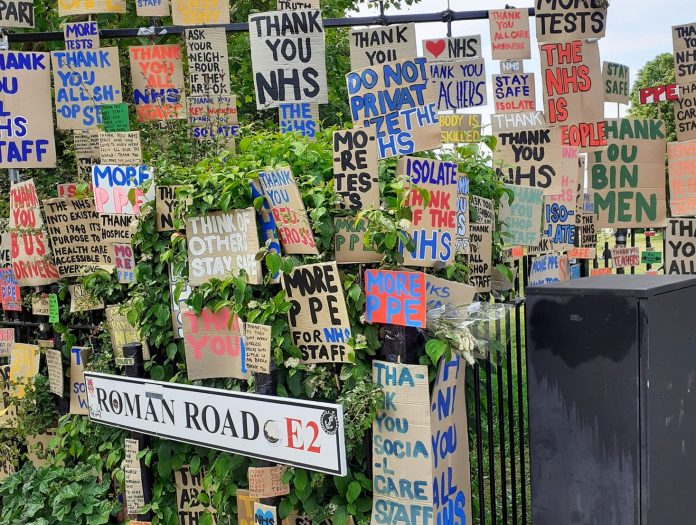NHS Wales Nurse
I’ve worked as a nurse in a hospital setting for well over a decade. The highs and lows of the job are unlike any other I know. It is stressful, heart-breaking, utterly hilarious and bloody hard work. I am fortunate to experience the very best of humankind, and often during their very worst of times.
As with all difficult jobs, I have had many days where I’ve wondered whether I could or should continue to do it.
Work-life balance is poor, stress levels always high, bureaucracy endless, traumatic situations on repeat, and of course the poor pay.
As most of the country and indeed the world is aware, the stress and difficulty of the job saw its most pronounced period in decades with the emergence of Covid in 2020.
Covid ‘heroes’
Heroes in the news for a while, and emboldened by the support and sincere wishes of our families and community, we faced the fear of the unknown with solidarity and resolve.
To begin with we didn’t know how to treat it. International conversations and ‘Teams’ meetings, information sharing and publications on a scale never seen, we spoke daily with medical teams across the world, sharing experiences. Trying to collate information, pattern-seek from the data, to attempt to identify treatment protocols and therapies, was such a massive undertaking.
While that was happening, our patients were the ones we trialled this information on. They knew we were trying, but they also knew we weren’t sure. I cannot imagine how that felt, being at the mercy of a disease while facing a healthcare system that openly stated it didn’t know how to treat it.
As the world developed treatment regimes, medications and therapies, the feeling of fighting through darkness was alleviated slightly. But then came the numbers. For every bed that was filled and each ward that met capacity, another was opened to accommodate. My hospital has 25 wards – each with 25 beds – and three months in, we had swallowed eight wards. This didn’t stop for over two years.
Unmanageable and uncharted
Day and night they came. Intensive care units expanded capacity to proportions beyond safe management. Medical ward staff took on responsibilities usually shouldered by high-dependency units.
Redirection of staff and resources meant everyone was at some point, if not for prolonged periods, working in areas which they felt wholly unprepared for and without the knowledge and skill to feel they were doing it (and therefore their patients) justice.
That alone is a very stressful situation to be in, even for one day. Add to that the sheer number of admissions, their critical illness, the fact that the patients were our own community… school dinner ladies, teachers, neighbours, corner shop owners, and our own colleagues and relatives, and we then find ourselves in unmanageable and uncharted territories.
Finding therapies that worked was a wonder, but the treatments took a long time. Some were under our care for months. Their physical health recovered to a degree, but their mental health will undoubtedly require years of rehabilitation.
And all this without their families being able to visit and support them. I had conversations over telephones I should never have had.
Watching people die with a respiratory illness is among the worst things to witness. The panic of not being able to breathe is dreadful. The fear experienced by our patients was just awful, and we tried not to mirror it even if we felt the same. They pulled our PPE off us, grabbing us and pleading with us to help. There was nothing we could do.
Throughout this time we saw poster after poster addressing staff mental health. A ‘recharge room’ was allocated. An internal, windowless room, hotter than Lucifer’s lair, with leaflets and lukewarm water jugs, and packaged teabags on the side. Tick-box exercises. An astounding lack of understanding, or worse.
- Part two will be published at a later date







